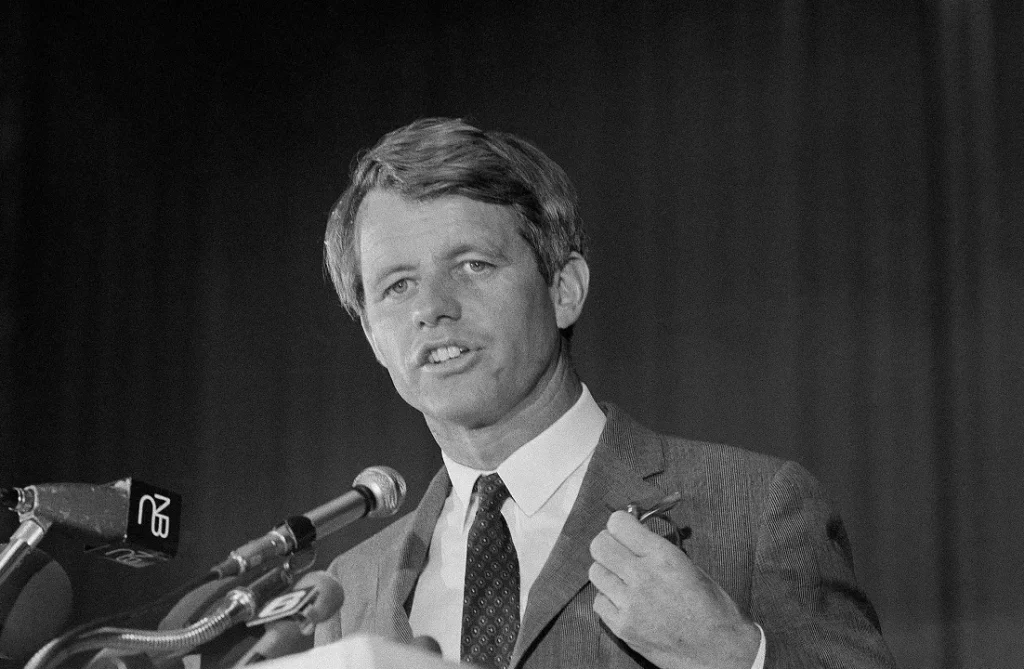On June 5, 1968, New York Sen. Robert F. Kennedy was fatally shot by an assassin at the Ambassador Hotel in Los Angeles, California while on the presidential campaign trail as a Democratic candidate. Kennedy, also known as Bobby, was 42 years old at the time of his death. Moments before being shot, he delivered a victory speech in front of supporters after winning the California primary race. The assassin, Sirhan Sirhan, a Palestinian immigrant from Jordan, shot Kennedy multiple times as he greeted well-wishers and made his way through the hotel crowd.
Kennedy was pronounced dead a day later on June 6, 1968. Sirhan Sirhan was sentenced to death in April 1969 for assassinating Kennedy, but his sentence was commuted to life in prison in 1972 after California abolished the death penalty. The summer of 1968 was a tumultuous time in America, with the Vietnam War causing unrest at home and an anti-war movement growing. Kennedy’s assassination came at a time when there was significant political and social tension in the country.
Robert Kennedy, born on November 20, 1925, in Brookline, Massachusetts, was the son of Joseph P. Kennedy and Rose Kennedy. He served in the U.S. Navy during World War II before returning to Harvard University to graduate in 1948. He earned a law degree from the University of Virginia School of Law in 1951. Kennedy married Ethel Skakel in 1950, and they had eleven children together. He began his political career managing his brother John F. Kennedy’s successful campaign for the U.S. Senate in Massachusetts.
After JFK’s assassination in 1963, Robert Kennedy served as attorney general in his brother’s cabinet until he resigned in September 1964. In 1968, Kennedy announced his candidacy for the Democratic presidential nomination, running an enthusiastic and passionate campaign that inspired hope among Americans troubled by discontent and violence. He won critical primaries in Indiana and Nebraska and spoke to enthusiastic crowds across the nation.
Kennedy’s life and legacy are remembered for his social activism and commitment to human rights. His nonprofit organization, “Robert F. Kennedy Human Rights,” continues his work in advocating for justice and equality. In 2022, Gov. Gavin Newsom of California denied parole for assassin Sirhan Sirhan, citing the heinous nature of Kennedy’s assassination. The political legacy of the Kennedy family lives on, with Kennedy’s son Robert F. Kennedy Jr. launching a Democratic challenge against Joe Biden in the 2024 presidential race as an independent candidate.













